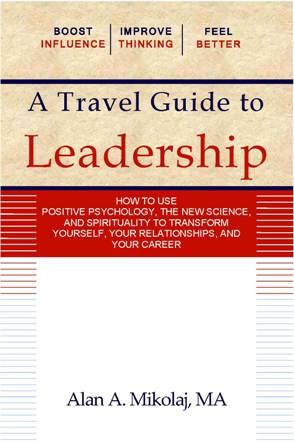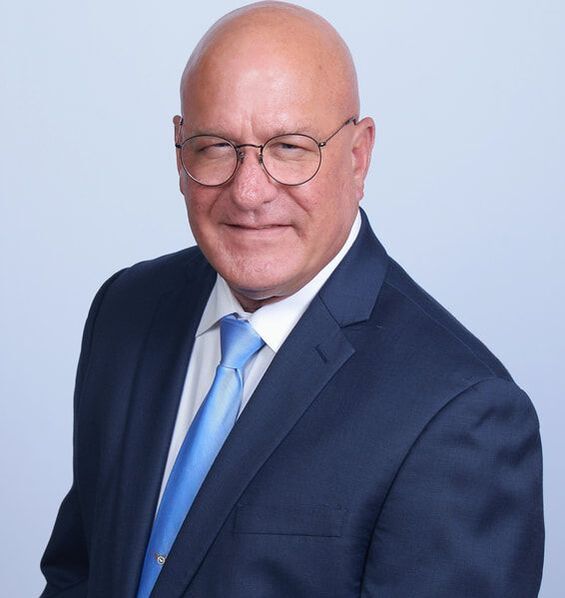|
Meaning and Purpose at Work Meaning and purpose at work has become a crucial factor for employees, leaders, and organizations like never before. I've written about it before and most recently in January and February of this year . My new course that will be released in the next couple of months, Leading With Meaning and Purpose, will guide you as a leader towards leading and living with greater meaning and purpose. Leading with greater meaning and purpose will positively impact your employee retention and engagement, organizational pride, well-being (both physical and psychological), life satisfaction, productivity, financial success, and most importantly, your overall leadership effectiveness. Meaning in Life Meaning and purpose at work falls under the more global term meaning in life. But what is that? We might have some idea, but thinking about it from a scientific perspective highlights how formidable it can be to get at something so subjective empirically. Researchers Laura King from the University of Missouri and Joshua Hicks from Texas A&M University recently reviewed the literature in order to demystify meaning and to find out what defines it, how researchers are measuring it, what its correlates are, and they bring together life experiences that have been shown to enhance meaning in life. In today's blog, I summarize the three facets they identified that define meaning in life and I offer some ideas about how you can integrate them into your leadership and put them into action with your team. But, let's first define the term. Defining Meaning in Life The definition of meaning in life oft cited and that has the greatest consensus in the literature was offered in 2009 by Dr. Michael F. Steger of the Colorado State University. He defines meaning in life as: ...the extent to which people comprehend, make sense of, or see significance in their lives, accompanied by the degree to which they perceive themselves to have a purpose, mission, or overarching aim in life. Three facets of a global sense of meaning in life 1) Comprehension & Coherence We have a need to make sense of our lives and the world. And indeed, having an understanding of the nature of life and making logical connections and interconnections helps to drive meaning in life. When the world makes sense and we can integrate our life story and its future into a coherent whole, we are adding to our meaning in life. And when we can't, like those impacted by traumatic events such as the recent mass shooting at Covenant School in Nashville, serious to extreme psychological stress or even post-traumatic stress can result. A struggle ensues to make sense of it all. And those who do, the research shows, report less stress compared to those who do not. The researchers said, "Senseless tragedies can spur the need to make meaning. However, such experiences are not the norm. The vividness of these events notwithstanding, most of the time the world does make sense." Unfortunately for many of us, our attempts to make sense of other people and our interactions with them can be self-defeating. In his book Clear Leadership, Gervase Bushe calls this interpersonal mush. I wrote a brief summary of it back in February. If you'd like to check that out, just click here: The One Thing That May Be Compromising Your Team Culture, Your Influence, & Your Integrity. One group of behaviors that the researchers report that promotes comprehension, and thus, greater meaning in our lives, are routines and rituals. Things that bring order and predictability can quietly enhance meaning in life. I've had a morning and evening ritual around my life mission, leadership philosophy, and core values for almost 20 years and I encourage leaders to develop their own routines and rituals every chance I get. And, after traumatic events, one highly recommended intervention is to return to your normal routines and rituals as soon as possible. 2) Purpose The second facet is having purpose. Having a sense of purpose is synonymous with meaning in life for many people. It's having a clearly articulated answer to the age-old question, "Why am I here?" When we have a clear sense of purpose, it organizes and drives purposeful goals, helps us manage behaviors, and provides a sense of deeper meaning. It promotes greater goal commitment and engagement with our goals. It gives us a reason to get up in the morning. Purpose is predictive of physical health, including mortality rates, resilience in the face of adverse situations, and delayed onset of a host of health problems and health-related behaviors. Both Abraham Maslow and Stephen Covey discovered that having a strong and clear sense of purpose is—without exception—a quality of self-actualized and highly effective people, respectively. Many people find purpose through religion and/or spirituality. 3) "I matter" / Significance Believing that "I matter" and that my life has significance, or what the researchers call mattering, is the third facet of meaning in life. It refers to the extent to which a person believes their life counts—that their existence has and will have a lasting impact on the world. It's the belief that I am making a difference in the world. It's also about leaving a legacy for future generations. Parenting and leadership are two prime examples. Experimental findings show that the reverse—undermining perceptions of mattering—detracts from and diminishes meaning in life. Feelings of insignificance predict profound negative outcomes, including suicidal ideation, suicidal attempts, antisocial behaviors (such as mass shootings), and even cause some to commit suicidal terrorist attacks. Being connected to others and being appreciated drives our sense of mattering and being excluded or forgotten can negatively impact our sense of mattering. This knowledge can have profound impact on group or team cohesion, diversity and inclusion efforts at work, and in society at large.  How a leader can leverage meaning in life Here are seven ways a leader can leverage these findings with their leadership and teams:
Have an amazing journey today! Alan Mikolaj is a coach and leadership development consultant with 15+ years of experience. He is passionate about helping leaders transform their leadership, their teams, and their organizations. Impactful, professional approach driven by a passion for meaning and purpose, a growth mindset, and a commitment to excellence and service in order to drive change and results. Alan maintains the ethics and standards of behavior established by the International Coaching Federation (ICF), including the standards regarding confidentiality. You can learn more about them on the ICF website. Impactful change starts with a conversation! Schedule your free, one-hour session by clicking here: Discovery Conversation with Alan Or call or email me: Contact Page
0 Comments
Leave a Reply. |
Alan Mikolaj
Alan Mikolaj is a a professional, experienced, positive, and passionate speaker, leadership and organizational development consultant, change agent, author, and coach. He holds his Master of Arts degree in Clinical Psychology from Sam Houston State University. He is a certified graduate coach from Coaching Out of the Box and holds his ACC and membership with the International Coaching Federation (ICF). Free Discovery Conversation!
Impactful change starts with a conversation! Schedule your free, one-hour session by clicking here: Discovery Conversation with Alan
Or call or email: Contact Page In his third book, A Travel Guide to Leadership, Alan offers you simple, fundamental, and powerful lessons that have the power to transform you, your relationships, and your career.

Blog Archives
July 2024

Linked2Leadership
Ranked #1 Business Blog! |
|
CONTACT
TEL: 346-291-0216 EMAIL: [email protected] SCHEDULE TIME WITH ALAN Free Discovery Conversation with Alan |











